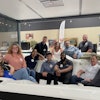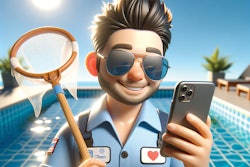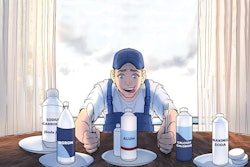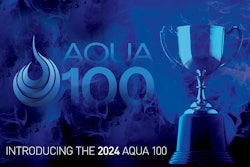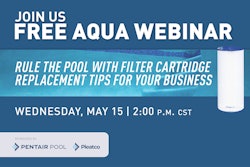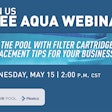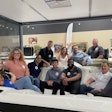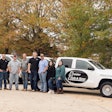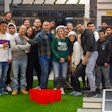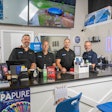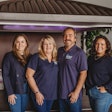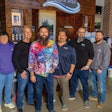
Like all business sectors, the pool and spa industry is in a state of constant adjustment as a younger generation integrates into the workforce. The term “millennial” is casually bandied about as a catchall synonym for fresh-faced youth, but that’s a mistake that can blind managers to the genuinely different needs of a major section of their staff.
Although the starting point for the generation varies depending on who’s doing the measuring, most agree that the first millennial birthdays are in the early 1980s; the youngest millennials are now just heading into college. That means a wide swath of the workforce falls squarely within the demographic.
In fact, the Pew Research Center recently determined 35 percent of the current U.S. labor force can be defined as millennials. In 2017, 56 million millennials were either working or seeking gainful employment, more than Gen X (53 million) or baby boomers (41 million).
And those millennials are essentially all in the first half of their careers, meaning they’re the staffers most in need of professional development. The good news for employers is that, as a generation, they tend to also crave it.
A Gallup poll found that 87 percent of millennials cited professional training and career growth as very important factors for them in the working world. Armchair sociology posits a simple logic behind this: Millennials grew up in a digitally-connected world with every piece of trivial information readily available. They’re conditioned to want new inputs with regularity and immediacy. That craving extends to the workplace.
Of course, ongoing training is built right into the process in the pool and spa industry. Technological innovations, regulatory shifts and even evolving taste trends mandate attentiveness and rigorous learning, at least for those businesses that want to endure.
RELATED: Millennials in Hot Water
If older generations have a reputation for wanting educational sessions to be direct, focused, and over quickly, millennials are looking for something that has more of an ongoing feel. Purpose should still be there, but millennials see training as something that never really stops.
“Managers of millennials should consider building some sort of professional development cadence into daily life,” young entrepreneur Deep Patel wrote recently for Forbes. “This can include things like paying for millennial employees to attend conferences, organizing routine training sessions or hosting outside speakers. In some cases, simply providing millennial employees with time for them to ‘self-teach’ can be effective.”
The professional development opportunities should also extend beyond technical training sessions, which have often dominated training efforts in the pool and spa industry. Increasingly, experts are stressing the value of getting concentrated doses of leadership learning into the mix.
This is partially because the younger generation has pushed their way through an extremely competitive educational environment where taking top spots in student organizations had a high currency. There’s also a recognition that individuals who move up the ladder in fields that draw upon a lot of technical acumen — such as the pool and spa industry — are often ill-equipped in the aspects of elevated positions that require more of a human touch.
As Madeline Dupre McNeely, a leadership coach at Harvard Extension School once said, “Managers often grow in their careers because they’re technically good at what they do. And then they reach a point where they’re suddenly managing a team of 12 people, and they realize they know nothing about supervision.”
There is a lot of investment — in both money and time — to training at this level. Some business owners might question if the outcomes are worth it.
RELATED: Millennials Tell it Like it Is
Millennials have a reputation of hopping from job to job at a rate that suggests fickleness and a lack of commitment. That perception isn’t undeserved. An Education Advisory Board study estimates that millennials will hold as many as 20 different jobs before they finally retire. The fear of an employee departure can be a major disincentive to setting up rigorous professional development structures. Why train someone who’s likely to move on? One simple answer to that question is this: They might not move on if the training is good enough.
The same Education Advisory Board study that identified all that job-hopping also found that an employee’s first choice is usually to stay. According to the research, 66 percent of employees will opt for new challenges within their current organization before looking for outside opportunities. Keeping those workers engaged with programs designed with their professional betterment in mind is one of the best ways to keep them from clicking through LinkedIn’s jobs postings.
The other reason to invest in those millennial workers is because the pool and spa industry needs them. In a story for AQUA, Leon Rawitz, president of the pool and spa industry consulting agency Rawitz Marketing Group, stressed the importance of adaptation: “The skills you THINK you need represent OLD THINKING. They will soon be extinct,” he asserted. “If we are to survive the whirlwind of change that is about to take place, we need visionaries. We need creative thinkers and excellent communicators.”
Millenials are the future of the pool and spa industry. It’s up to the current leaders to help them meet that future fully equipped to make a difference.




















